Between and I took 7345 steps.
IndieWeb post types
This content type is full of IndieWeb post types, which are all content types which allow me to take greater ownership of my own data. These are likely unrelated to my blog posts. You can find a better breakdown by actual post kind below:
Post details
Arun Gupta is back, this time with his latest book in hand titled "Fostering Open Source Culture" to share his wisdom and experiences of fostering open source culture. BTW you can use the code `OSCULTURE20` to get 20% off (both print and e-book). Use this link and enjoy.
Post details
“What do you mean you’re autistic? You’re so good with people.” Yea, I’ve spent my entire life studying people, trying to build the perfect mask to fit in. My personality is a patchwork of traits I’ve picked up from others, things I thought were cool, things that made me seem normal. I’m exhausted🫠
Post details
This episode was LIVE! Even if you usually listen to this show, if you want you can check out the video on YouTube :)Visit https://cupogo.dev/ for store links, past episodes including transcripts, and more!GopherCon IsraelAccepted proposal: Clone a HashWe Replaced Our React Frontend with Go and...

Between and I took 6884 steps.
Post details
Sometimes I feel bad that I’m less fast at work because of burnout. Then I remember who/what gave me that burnout to begin with, AND how it negatively affects my life outside of work. And so I feel less bad
I'm interested in attending
Having been at the ahem epicentre of this incident, this will be a very interesting talk for those of you in Athens!
Also looking forward to internal conversations around being able to get a blog post on Elastic's blog about this 👀
Post details
This week on The Business of Open Source, I spoke with Ivan Burazin, the CEO and co-founder of Daytona. First of all, Daytona was one of the sponsors of the first edition of Open Source Founders Summit, and I had a chance to meet Ivan in person at the event. So a big thank you to him for taking a...

Between and I took 3811 steps.
Post details
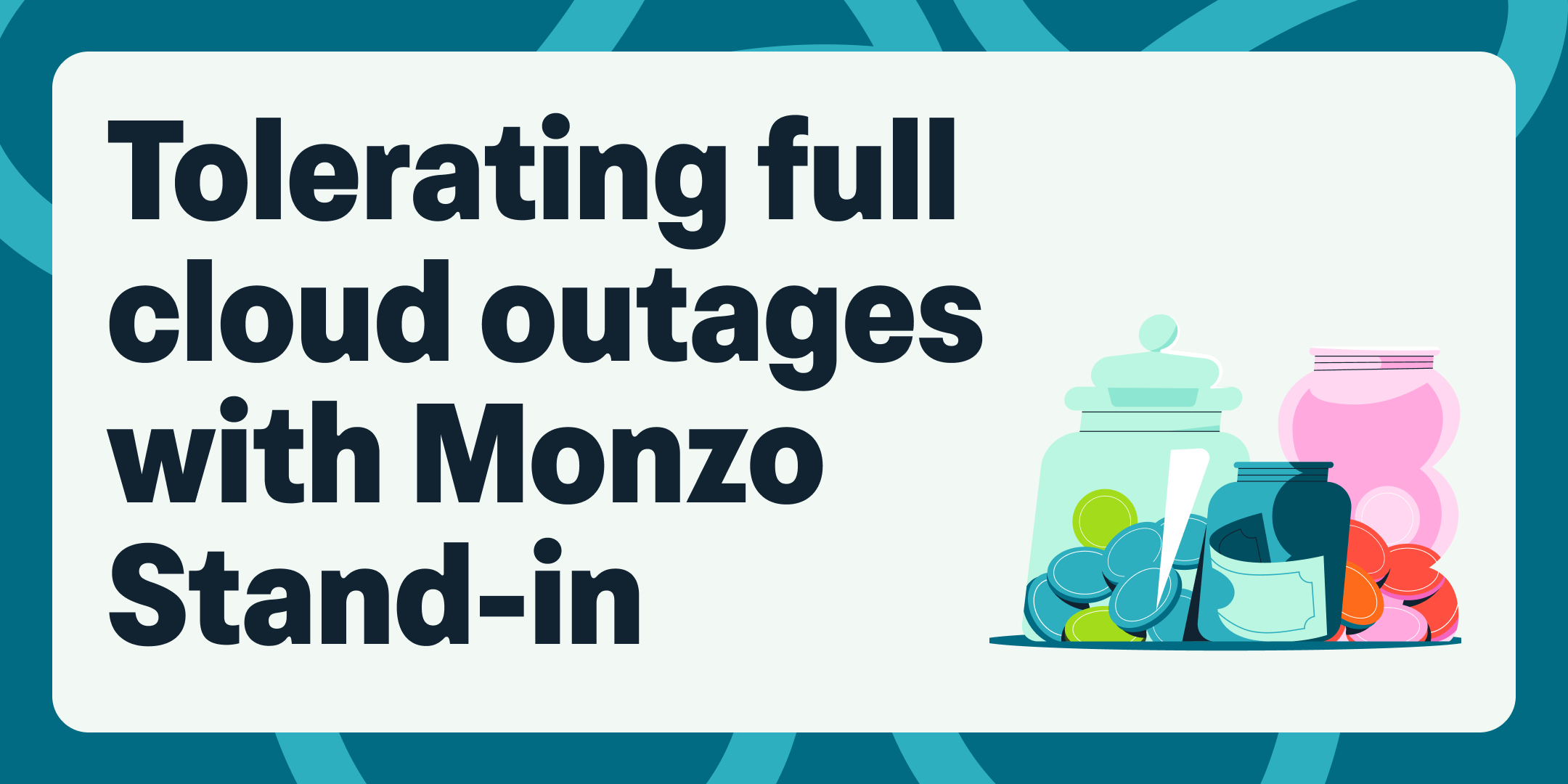
Post details
💯💯
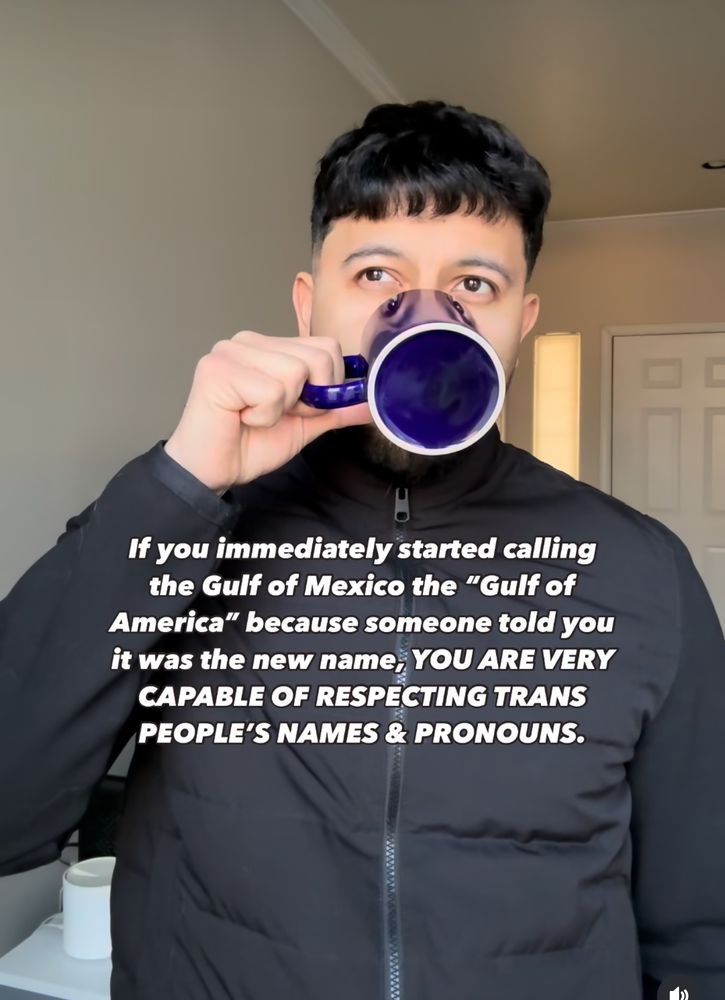
Post details
‘You Can’t Let This Happen,’ Says Fundraising Email From Sitting U.S. Congressperson

Between and I took 5429 steps.
Post details
After 30+ years in the software industry, Bert Hubert has experienced a lot. He founded PowerDNS, published articles for places like IETF / IEEE, and built his own parliament monitoring system. That just scratches the surface. Recently, Bert wrote about what it takes to build software for the long term. Let's dig in.
Post details
Had a great time chatting w Jeff Atwood about tech blogging! We knew he was a legendary blogger, but turns out he's a genuine super-nice guy too. https://writethatblog.substack.com/p/jeff-atwood-on-technical-blogging
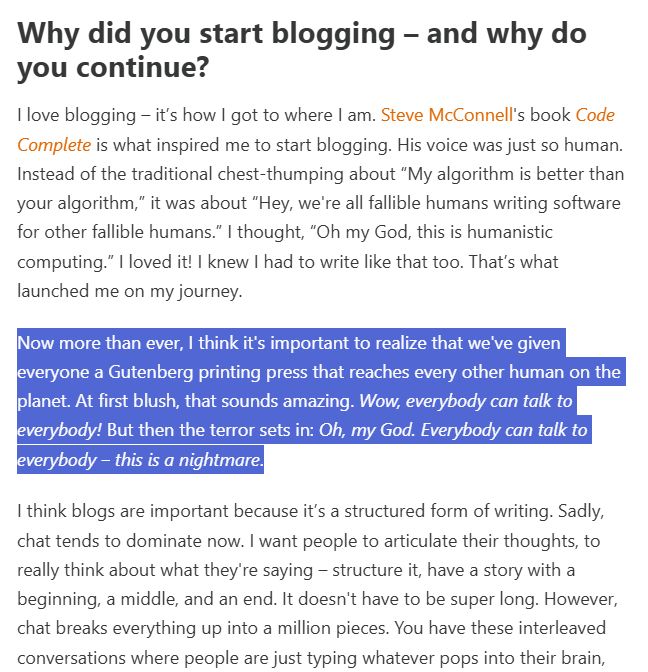
Post details
🛡️ Security releasesGo 1.23.6 & 1.22.12 releasedGo 1.24rc3 releasedProposal accepted: cmd/fix: automate migrations for simple deprecations⛓️💥 Go Supply Chain Attack: Malicious Package Exploits Go Module Proxy Caching for Persistence👊🏾Ghettoize Hook👊🏾Interview with Thorsten...

Between and I took 3170 steps.
Post details
Sharpie rainbowed American Flag Velcro patch as a an act of rebellion... 🏳️🌈🇺🇸

Post details
Later this week, I'm going to see a lot of people I care deeply about and a lot of people who have the connections and resources to make a huge difference for the Matrix.org Foundation, the nonprofit I lead. For that, I am genuinely excited. Unfortunately, my excitement is
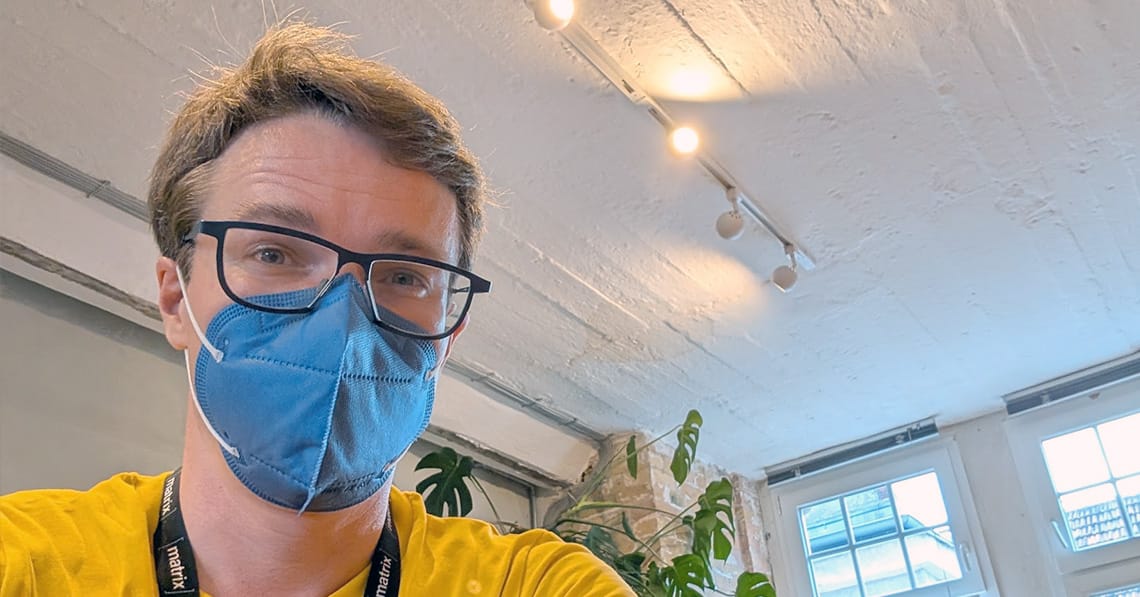
Post details
Tough news for Ye but at least he will always be welcome on Substack [contains quote post or other embedded content]
Post details
Go's steady cycle of releasing new versions every six months continues. On this episode, our "What's new in Go?" correspondent (a carry over from Go Time) joins special guest host Johnny Boursiquot to talk about the new features and changes coming in Go 1.24. As always, we've got some great...

Post details
So many billionaires so few guillotines
Post details
Exploring how static site generation and the small web movement represent acts of digital sovereignty. Why reviving old blogs and embracing simple HTML matters in an era of platform control.
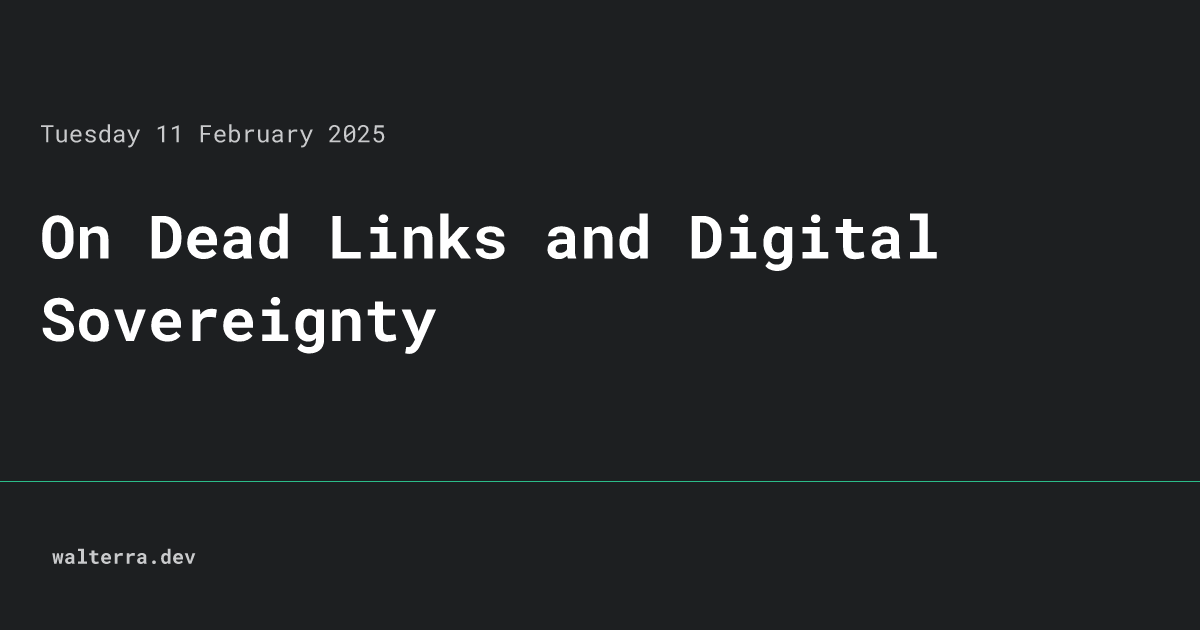
Between and I took 3744 steps.
Post details
A helpful article on checking your permissions for a GitHub repo via the API: https://www.jvt.me/posts/2025/01/02/what-access-github/
Post details
https://www.jvt.me/posts/2025/01/27/go-tools-124/ Super happy to see this headline :D
Post details
BATCH BUNCH #0002 is complete. A productive session comes to a close including serious bug hunting, tasty coffee drinking, and creative talk writing! See you next time? bonus spoilers: BB collectible item(s)/swag is also in the works. stay tuned. 🖱️⌨️🌐😌☕️
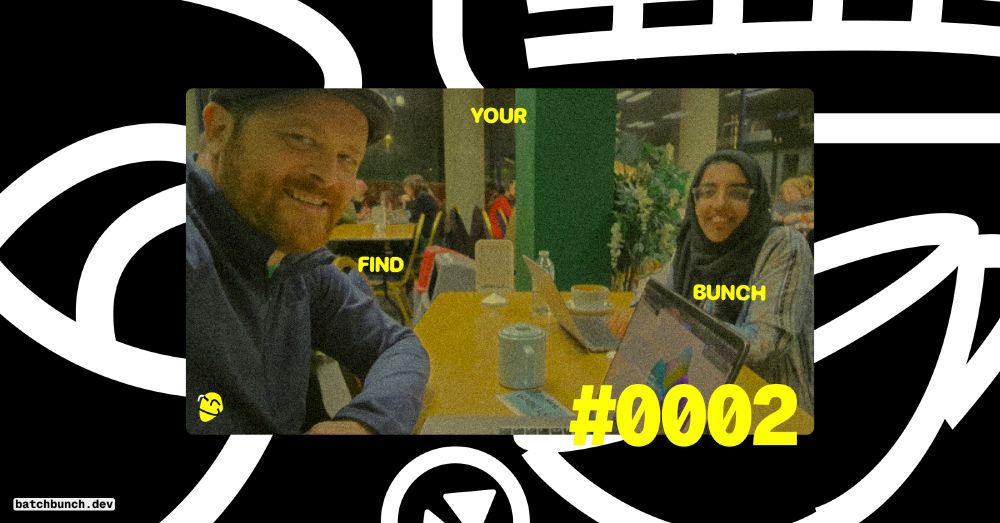
Post details
photo credits to @computerist.bsky.social! + sending healing vibes to BB co-organiser @www.jvt.me.web.brid.gy who's been battling a cold and wasn't able to make it 🤗
Post details
I inherited this project, and all I got was all these angry users - #opensource @www.jvt.me https://www.youtube.com/watch?v=PK8CMcePn2A
Post details
I inherited this project, and all I got was all these angry users - #opensource @www.jvt.me https://www.youtube.com/watch?v=PK8CMcePn2A
Very exited to see that my talk, "I inherited this project, and all I got was all these angry users" from #StateOfOpenCon is now live - thanks for the super speedy publishing, OpenUK!
I was honoured to kick off the Open Source Software & Security Track with a keynote about my experiences being an Open Source maintainer, and digging into the factors that make maintaining oapi-codegen difficult, and on top of that my own personal experiences which lead to difficulties in maintaining Open Source, especially when it's used actively by companies.
There were some great discussions about the maintainer burnout problem over the conference, and I had some great chats with folks in the "hallway track".
I'll be finishing my write-up of the conference in the next week (🤞🏼) but am very excited to see the talks are already up on YouTube, so I can catch up on talks I missed, too
Between and I took 2770 steps.
100% one of the best soundtracks of all time, and a number of the songs are on my regular wider rotation
Post details
🎶 It’s a TRON: Legacy soundtrack kinda day.(https://gregorlove.com/2025/02/its-a-tron-legacy/)
Post details
Getting All Comments From a Given User on a GitHub Discussion, by @www.jvt.me@www.jvt.me: https://www.jvt.me/posts/2025/01/08/github-discussion-comments/
Between and I took 4415 steps.
Between and I took 4744 steps.
Between and I took 4390 steps.
Post details
where's the EO that we've all gotta rename our github branches back from `main` to `master`?
Post details
has anyone else's Release Radar gotten noticeably worse lately?? more artists i don't follow at the expense of ones i like, updating kind of randomly instead of fridays...
Post details
If I were to create a tool or anything related to containerization of software, I'd call it Tupper.
Between and I took 6975 steps.
Post details
Attached: 1 image These stickers I made went to #FOSDEM with the generous help of @andypiper@macaw.social Here's the link to download the file if you'd like to make your own stickers, put it on your site, etc. https://theindiebeat.fm/make-art-not-billionaires/ #makeartnotbillionaires #nobillionaires @www.jvt.me@www.jvt.me

Post details
This video of mine from five years ago is aging depressingly well --- and it leaves me at once bitterly disappointed and steadfastly resolved https://www.youtube.com/watch?v=px9OjW7GB0Q

